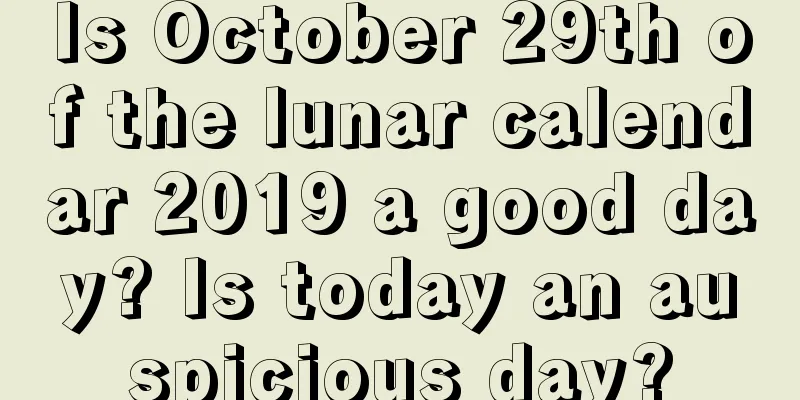How do regions across the country celebrate Qingming Festival? Are there any different customs?

Introduction: The arrival of March indicates that spring is in full swing, and the Qingming Festival comes in the drizzle of March. Qingming Festival is one of our traditional festivals, and every region has its own customs of celebrating Qingming Festival. So how do regions across the country celebrate Qingming Festival? Are there any different customs? Let’s follow the editor to find out. March is the last month of spring, when all things will revive and begin a beautiful growth process. The third month of the lunar calendar is a time full of vitality because it is the most beautiful.Hebei: Going outing, viewing flowers, picking vegetables, and wearing willow branchesIn Hebei, burning paper money at graves is done "early on Qingming Festival and late on 11th day of the 11th month (Ghost Festival)". Tomb sweeping and paper burning begins a week before Qingming Festival, but few people go to sweep tombs on Qingming Festival day. People in southern Hebei choose to visit graves on the Cold Food Festival, the day before Qingming Festival. Beautiful men and women in the city went out for a walk, to see flowers, to pick vegetables, and to wear willow trees in their hair. There is a proverb that goes, "If you don't wear willow trees during Qingming Festival, your beauty will turn into white hair."Shanghai: Tomb sweeping, outing, and eating QingtuanThe main activities of Qingming Festival in Shanghai are tomb sweeping and outing. Every year, nearly 10 million people go out to sweep tombs and pay homage to their ancestors around the time of Qingming Festival. The reform and opening up has promoted the prosperity of cemeteries, and the relevant sites are mainly in Suzhou, Jiaxing and other places outside the province. As a result, the number of people traveling to the above-mentioned areas reaches more than one million, which often causes traffic congestion out of the province in the days before and after the Qingming Festival.Pound the brome grass juice and glutinous rice together to blend the juice and rice flour. Then wrap it with red bean paste, jujube paste and other fillings, use reed leaves as the bottom, and put it in the steamer. The steamed green rice dumplings are bright green in color and fragrant, and are the most distinctive seasonal food for the local Qingming Festival. Some families in Shanghai also like to eat peach blossom porridge during the Qingming Festival, and like to use knife fish during tomb sweeping and family banquets. For Shanghai people, Qingtuan is an indispensable offering during the Qingming Festival to worship ancestors. Wenzhou: Eating Miancai PancakeIn Wenzhou, there is a custom of eating miancai cakes. As the name suggests, miancai cakes are cakes made of miancai. Some people also call them Qingming cakes. Miancai is translated from Qingming cake according to Wenzhou dialect. Its scientific name is sphenanthera parvifolia, and it is only available during the Qingming Festival. There are many requirements for making mulberry cake. First, you have to go to the field to pick mulberry (mulberry is not something that can be planted, but will grow on its own during the Qingming Festival), then wash and dry it, put it into an inverted mortar (a mortar is a tool made of stone, which they used to pound rice cakes). After pounding it, put in rice flour (usually eight pounds of white rice flour and two pounds of glutinous rice flour), and then add appropriate amount of water. Make sure all the mulberry is evenly blended into the rice flour. After pouring it, you have to prepare the stuffing, which is also an important process. The most common thing here is to use fresh bamboo shoots, tofu, pork, and pickles (or shredded radish). After frying, you can wrap it when the stuffing is cold. After wrapping the mulberry cake, be sure to put a grapefruit leaf underneath. First, it is to avoid sticking to the pan. Second, and most importantly, after adding grapefruit, the mulberry cake will have a grapefruit fragrance, which tastes much better. After wrapping, put it in a steamer and steam it for 25 minutes.Huzhou: Wrapping ZongziIn Huzhou, Zhejiang, every family makes rice dumplings on Qingming Festival. They can be used as offerings to graves or as dry food for outings. As the saying goes, "The rice dumplings during Qingming Festival are firm and solid." Around the Qingming Festival, snails are plump and strong. As the saying goes, "A snail on Qingming Festival is as good as a goose." Farmers have the habit of eating snails on Qingming Festival. On this day, they use a needle to pick out the snail meat and cook it, which is called "tiaoqing". After eating, the snail shells are thrown onto the roof. It is said that the rolling sound on the roof tiles can scare away mice, which is beneficial for raising silkworms after Qingming Festival. On the Qingming Festival, a community banquet is held. People from the same clan temple have dinner together. Families without ancestral halls usually have dinner together with the descendants of the same great-great-grandfather. The dishes for the community wine party are mainly fish and meat, the vegetarian dishes are mainly tofu and vegetables, and the wine is mainly home-brewed sweet white wine. In Heshan Town, Tongxiang City, Zhejiang Province, there is a saying that "Qingming Festival is as important as Chinese New Year". On Qingming Festival night, it is important for the whole family to have a reunion dinner. The following traditional dishes are indispensable on the dinner table: fried snails, glutinous rice embedded in lotus root, sprouted beans, amaranth, etc. These dishes are all related to silkworm breeding. Throwing leftover snail shells into the house is said to scare away mice by the sound, and caterpillars will burrow into the shells to build nests and no longer come out to harass silkworms. Eating lotus root is to wish the silkworms to produce long and fine silk. Eating sprouted beans is a good omen for getting rich. Eating Malantou, a fresh vegetable, is because its name means "green", which matches the "green" in "Qingming".Fujian: Eating cold runbingPeople in southern Fujian do not necessarily only visit graves on Qingming Festival. There are generally two dates for tomb sweeping. The custom in Quanzhou is a few days before and after Qingming Festival. In Zhangzhou, some people will choose to sweep tombs around Shangsi Festival on the third day of March. The Hakka people usually do it after the Spring Festival. The method is, after cleaning the grave environment (such as weeds and trees), first worship the land god, and then worship the ancestors. After the worship, "tomb paper" is pressed on the grave with small stones, which means that the grave has been repaired. People generally do not cook food on Qingming Festival, and only eat cold runbing. This is a custom that originated from the Cold Food Festival.Summary: Through the above article, we have a certain understanding of the customs of celebrating Qingming Festival in different regions. I hope that everyone can experience the folk culture of different regions. I also hope that everyone will like the above article! |
<<: What do you need to know about tomb sweeping during Qingming Festival?
Recommend
What are the auspicious days in August of the lunar calendar in 2020 that are suitable for burning incense and praying?
Introduction: It is necessary to choose an auspici...
Is it suitable to pick up the car on the first day of the eleventh lunar month in 2020?
Is it suitable to pick up the car on the first da...
Query the auspicious and unlucky time of December 22, 2017, and the auspicious and unlucky time of December 22, 2017
Most traditional festivals are concentrated in th...
November 22, 2020 What is the light snow today? Can the light snow this year bring peace?
Introduction: The date of the Xiaoxue solar term w...
Is it good for people born in the twelfth month of the lunar calendar to be born in the year of the dog?
Whether a person is born good or bad is determined...
Is September 9, the day before Cold Dew in 2019, suitable for opening a business? What time is the Cold Dew in 2019?
Introduction: Opening a business is an important e...
Recommended complete collection of WeChat New Year greetings for the fourth day of the Lunar New Year in 2019!
Introduction: In our country’s tradition, people u...
Is it appropriate to worship ancestors on April 16, 2020, the Year of the Rat?
Is it appropriate to worship ancestors on April 16...
Is it a good time to travel during the Minor Cold on January 5, 2021? 2020 (Lunar Calendar) Minor Cold Travel Auspicious Time
Introduction: It is generally necessary to choose ...
What day is Teachers' Day in 2021? Teachers' Day
Teachers' Day aims to recognize the contributi...
A complete list of taboos for going out during the Ghost Festival. Can you take your children out during the Ghost Festival?
There is a folk saying that when the Ghost Festiva...
Can we offer sacrifices to our ancestors on the twelfth day of the third lunar month in 2019? What are the rules?
Is the twelfth day of the third lunar month in 201...
Can I register for a marriage certificate during the Winter Solstice in 2017? What is the meaning of the Winter Solstice?
The issue of marriage has always been a concern of...
What is the auspicious time for the ninth day of the tenth lunar month in 2021? When is the auspicious time?
The tenth month of the lunar calendar is the begin...
Who are the great men and celebrities born during the Grain Rain solar term (4.19-4.21)?
Grain Rain is the last solar term in spring, which...









